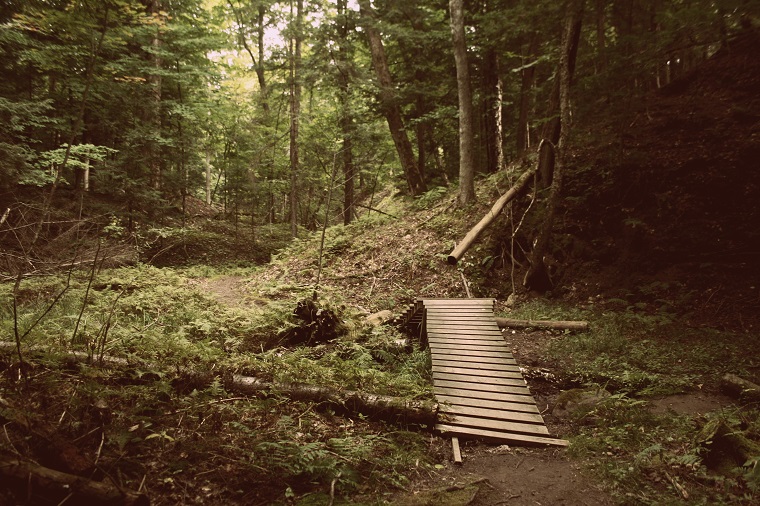Lost in Translation: Deconstructing Different Knowledge Systems to Improve Cross-Cultural Communication
By Harshina Brijlalll
15 March 2021

Two nations meet to discuss land and resource management. However, the two parties have different ways of knowing. How can meaningful exchange occur if both parties come from cultures with different knowledge systems? Can vital decisions be made if one nation views its knowledge system dominant over the other?
Researchers at the University of Guelph have created an important new resource to aid meaningful dialogue between Indigenous and Euro-centric (or “western”) science knowledge holders about pressing environmental problems.
Co-authors Dr. Stephen Crawford, an ecologist in the Department of Integrative Biology, and Dr. Jeji Varghese, an environmental and rural sociologist in the Department of Sociology and Anthropology, developed a much-needed framework that can be used to communicate between different knowledge systems. The framework will help build a shared understanding of these systems among different communities.
|
“Cross-Cultural communication, particularly when it comes to the exchange of knowledge about the natural world and our roles in it, has long been a challenge for human civilization,” explains Crawford. And yet the need for meaningful and reciprocal dialogue about the environment between Indigenous and Euro-centric knowledge holders has never been more urgent, due to the catastrophic threats posed by climate change and other environmental stresses. The project was initiated by the late Chief Ralph Akiwenzie from the Saugeen Ojibway Nation, who recognized the need for communities with different ways of knowing to better understand each other’s knowledge systems regarding natural resource management. This led Crawford and Varghese on a ten-year journey to find and develop tools for the project. To begin, the researchers scanned hundreds of scholarly articles on ecology and natural resource management to understand how knowledge systems related to these topics were being used, defined and understood. They found a massive volume of published pieces that had no consistent definition of the phrase "knowledge system" or "knowledge". The pair realized that there needed to be a basic shared understanding of knowledge system structures and their functions. |
|
Varghese says, "We need to pay attention to how our understanding of the world shapes what we see, and how this understanding of the world shapes our language."
Differences in how we see the world, and the language we use, can affect communication between peoples in critical ways.
For example, Indigenous knowledge holders have found that not all cultural knowledge can be transferred due to language barriers. In Indigenous oral traditions, every word carries weight and has meaning. But many words do not easily translate into English, and lose meaning or context in the process. This can render the translated word “spiritless”.
Another example is the use of the word “knowledge” itself. In many Euro-centric knowledge systems, it is used as a noun. In contrast, Indigenous knowledge systems often use it as a verb, and describe it as a way of knowing or being involved in a process.
The framework compiled by Crawford and Varghese is designed to help minimize such miscommunication. Importantly, it offers the first explicit working description of a knowledge system (see box) that, along with the framework itself, will help improve engagement and understanding across a diversity of Indigenous, Local and Science communities.
The researchers emphasize that understanding Canada's history and relationship with Indigenous peoples is vital when discussing knowledge systems. Crawford explains, "In Science, one cannot understand an organism fully without understanding its evolution. Similarly, you cannot know a cultural knowledge system unless you learn its history."
European colonization has strongly influenced the dominant science knowledge system that prevails in society. The words and processes used are all viewed through a colonial lens which reigns at a provincial and federal level.
Due to this bias, natural scientists often express distrust of Indigenous knowledge systems. Indigenous scholarship has been historically marginalized, and therefore Indigenous knowledge assertions become significant only when validated by Euro-centric Science methods.
These biases become harmful when trying to achieve meaningful exchange between communities. A growing number of scholars are encouraging decolonizing approaches to knowledge system interactions that recognize Indigenous nations as treaty partners, rather than stakeholders.
As part of the published framework, Varghese and Crawford also built a collection of ecology and resource management-related literature from different knowledge systems. The annotated collection describes over 500 relevant publications that can aid both scholars and non-scholars alike who are working across different knowledge systems to manage and protect the environment.
With the enormity of the environmental challenges we face bearing down upon us, Varghese and Crawford call on everyone to deconstruct, decolonize and reflect on understanding the knowledge systems that influence our interactions with different cultures.
“We are in this together. All the way,” they write in the paper.
This study was funded by the Social Sciences & Humanities Research Council. The authors respectfully acknowledge their presence and work on Indigenous lands, and offer this review as a contribution to continuously working towards respectful relationships.
Read the full study in the journal Ecological Monographs.
Read about other CBS Research Highlights.